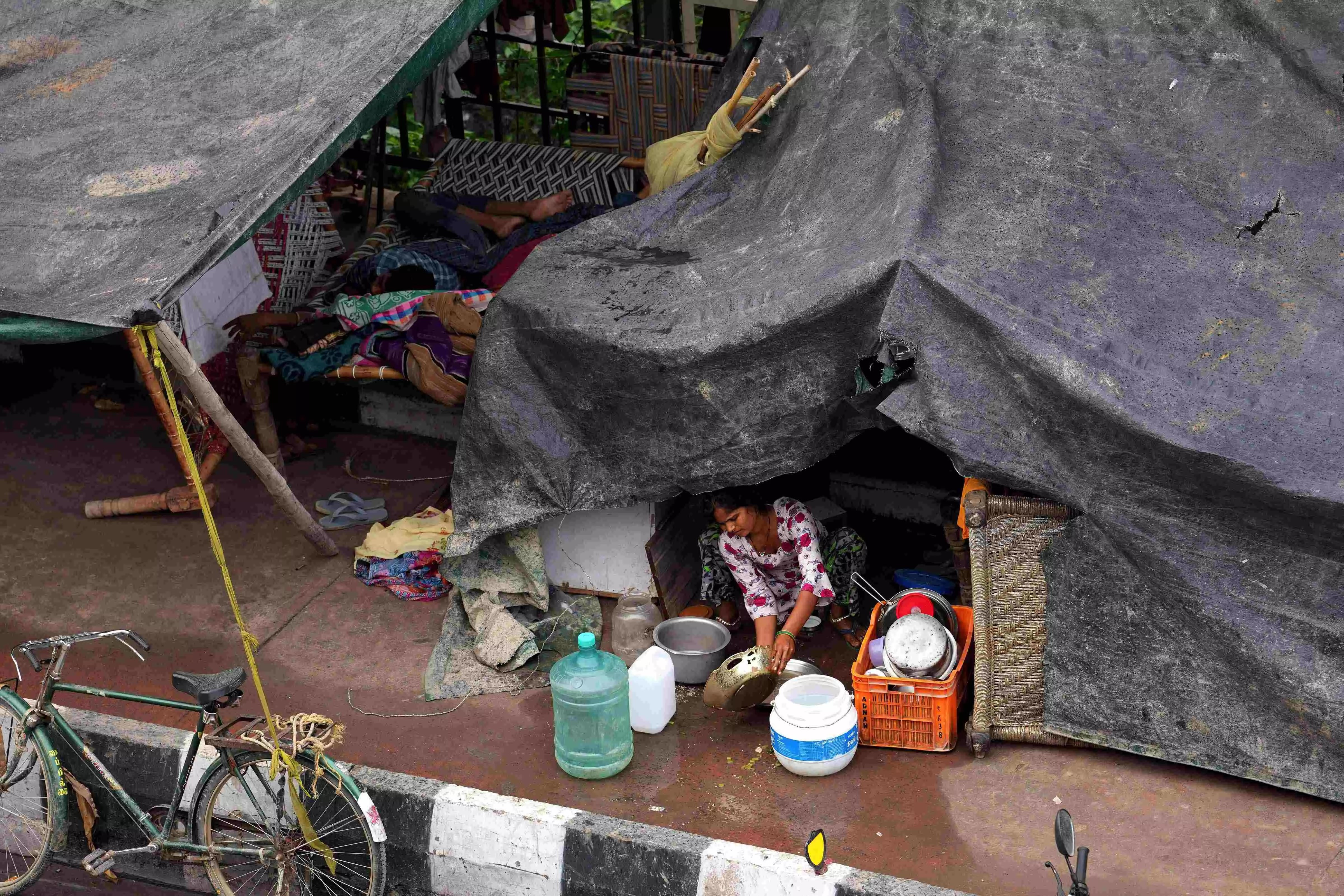Devastating deluge

After touching a 60-year high on Thursday evening, the water levels of the Yamuna river have, fortunately, started to show signs of decline. While the water recedes slowly, the life of Delhiites will continue to be affected for weeks to come. Paradoxically, after the deluge vanishes, the problem of water shortage will be waiting for a large number of residents of Delhi, as the functioning of major water treatment plants has been obstructed across the city. Furthermore, even after the flooding is over, low-lying areas will continue to grapple with water-logging and resultant water-borne diseases. It won’t be wrong to say that the Delhi government has its task cut out for the coming weeks. Providing immediate relief to affected persons should certainly be accorded primacy, but the challenge before the government is more daunting and layered. It is now well established that climate change — which will continue to be a pestering problem for humanity — has a direct bearing on occurrence of natural disasters. Several scientific bodies, including the Intergovernmental Panel on Climate Change (IPCC), have confirmed that rainfall and its frequency would increase abnormally as an impact of climate change. The Delhi floods are a clear manifestation of this phenomenon. However, the response to these warnings has been slow and inadequate, with little done to strengthen infrastructure and build resilience against climate-related disasters. When the devastating floods of 1978 had hit Delhi, 18 lives were lost, thousands were rendered homeless, and a huge financial cost was incurred. Following the harrowing deluge, lessons were learnt and preparedness was ramped up. However, the implementation of those lessons, particularly around urban planning, have been tardy. In the case of current floods, which saw the Yamuna water levels rising to 208.66 metres against the peak of 207.47 metres during the 1978 floods, newer challenges have been added to the existing ones. There is not just the need to learn new lessons, but also learn them fast. The problems like the one Delhi is facing right now will no longer be oddities. They are here to stay. In this context, a long-term strategy becomes an essential prerequisite for ensuring a normal life for Delhiites. In addition to a long-term flood-control strategy, the need to revamp the drainage system to ensure that preventable flood-like situations do not go out of control is also pertinent. It may be noted that the impact of the floods goes beyond immediate physical damage. It exacerbates social and economic inequalities, hitting the most vulnerable communities the hardest. Slums and low-income neighbourhoods are particularly susceptible to flooding due to their precarious location and lack of basic amenities. The floods further deepen the divide between the haves and the have-nots, highlighting the urgent need for inclusive and equitable urban planning. In the wake of exacerbating climate change and an ever-increasing urbanisation pressure, the need to assess the safety and security of families dwelling in filthy slums battered by chaotic drainage systems becomes very pertinent. A large number of such families, on account of residing at the unsafe outskirts of metropolis, have already rendered their life and safety vulnerable. As many villages are still advancing towards urbanisation, this trend is only likely to exacerbate. A clear-cut policy has to be envisaged to limit the residence in areas that are unsafe for residential purpose. Furthermore, there is a need for better urban planning and infrastructure development. The city must invest in improved drainage systems, flood control measures, and sustainable water management practices. Retrofitting vulnerable areas and constructing flood-resilient buildings should be prioritised to minimise future damage. The current Delhi deluge is a result of a combination of factors including climate change, long-ignored urban planning and lack of alertness on the part of the incumbent government. It is disheartening to see that instead of recognising the depth of these problems and collaborating mutually, political parties have started indulging in mutual blame games — diverting the priority from public safety. Collaboration among different stakeholders is the need of the hour. The Delhi government should work closely with central government agencies and civil society organisations. Knowledge and insight sharing from other flood-prone regions can help chalk out a sustainable solution to the problem.



